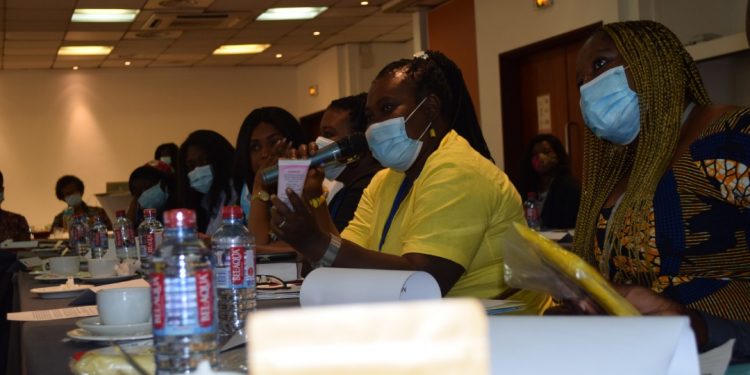The Global Shea Alliance in partnership with UNIDO has organized a training programme for cosmetic producers in the country.
The training programme, which brought together 50 entrepreneurs in the cosmetic production sector, was aimed at increasing their competitiveness on the global market.
Speaking in an interview on the sidelines of the training, the Managing Director of Global Shea Alliance, Mr. Aaron Adu, said the training programme formed part of the West Africa Competitiveness Programme (WACOM), which is being implemented by the two institutions.
“We set up this training for cosmetic producers in Ghana on branding and marketing. We know that entrepreneurs in the cosmetic industry produce some of the best products that are suitable for our skin but one thing that goes against them is the way they brand It and the way they market it and so this training today provides an opportunity for us to bring experts to run these entrepreneurs through the various techniques in branding and marketing.
“We want to ensure that they are able to improve their capacity and brand their products well. The products our entrepreneurs produce are of high quality but they are not able to compete well as Ghanaians prefer cheap imported cosmetics product for a various reasons,” he stated.
He said while the reason could be attributed to cost, one important thing that could not be ignored was how Ghanaian entrepreneurs branded and marketed their products.
“We want the entrepreneurs to understand the market they are serving and how they can compete effectively,” he said.
He said the Shea Alliance has a series of programmes which it would roll out within the year all in an effort to improve the competitiveness of the entrepreneurs.
“We will look at other aspects such as production, distribution, sourcing raw material and everything that will help them become more competitive,” he noted.
Growing industry
Also speaking in an interview, the Chief Technical Adviser for WACOM, Ghana, Mr. Charles Kwame Sackey, said the Ghanaian cosmetic industry was doing well, describing it as a growing market with high demand.
“We, however, have to work on the quality of the products. Yes some are of high quality but on a scale of 1 to 100, only about 20 percent of the products are of high quality but I think we have to build on that and increase the margins,” he stated.
He said the few who are producing high quality products that meet standards therefore have to be supported to brand and market the products well across the various divides of the market.
“The other problem we have with the Ghanaian market is adhering to standards. The Ghana Standards Authority has standards for the various blends of cosmetics and when you want to sell you have to get accreditation from the Food and Drugs Authority as well; but the truth is that some of them do not go through these processes but want to sell,” he pointed out.
He said this goes a long way to affect the confidence people have in products produced locally.


Comments are closed.